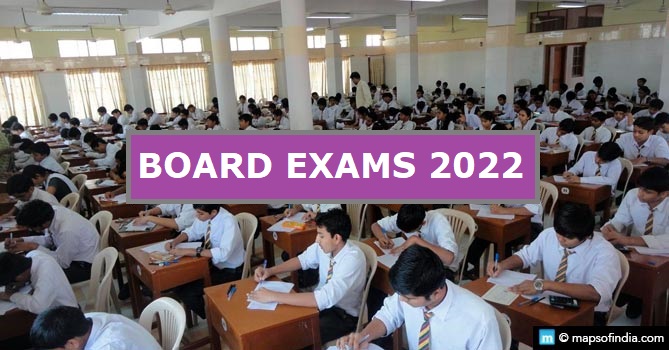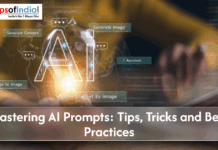History (Class 12) Term 2 Question Paper 2022
History (Class 12) Term 2 Question Paper 2022
SECTION A
(Short-Answer Type Questions)
1. Describe the three lists of Federalism provided by the Drafting Committee in the Constituent Assembly.
2. (a) “The jotedars were more effective than that of zamindars in the villages.” Examine the statement in the context of Permanent Settlement.
OR
(b) Examine how the lives of Paharias in the hills of Raj Mahal, were intimately connected to the forests.
3. Explain the main provisions of Subsidiary Alliance as devised by Lord Wellesley in 1798.
4. Explain the provisions of Irwin-Gandhi pact. Why was it criticised by the radical nationalists ?
SECTION B
(Long-Answer Type Questions)
5. “The British used military power on gigantic scale and passed number of Acts to suppress the Revolt of 1857.” Elucidate the statement with suitable examples.
(a) Describe the circumstances that led to the initiation of Non-cooperation Movement by Gandhiji. Explain the significance of this movement ?
OR
(b) Describe the role of Gandhiji as a social reformer and as a Political leader.
(a) “The paintings in the Mughal Chronicles possess special powers to communicate ideas about the power of king and kingdom.” Give arguments to support the statement.
OR
(b) “Few women of the imperial household played a significant role in the Mughal empire.” Justify the statement.
SECTION C
(Case Based Questions)
8. Read the source given below and answer the questions that follow :
Darbar-i Akbari
AO Fail gives a vivid account of Akbar’s darbar : whenever His Majesty (Akbar) holds court Marboo a large drum is beaten. of which are accompanied by Divine praise. In this manner the sounds, people of all classes receive notice. His Majesty’s sons and grandchildren, die grandees of the Court, and all other men who have admittance, attend to make the kornish, and remain standing in their proper places. Learned men of renown and skillful mechanics pay their respects: and the officers of justice present their reports. His Majesty, with his usual insights, gives orders. and settles everything in a satisfactory manner. During the whole time. skillful gladiators and wrestlers from all countries hold themselves in readiness. and singers, male and female, are in waiting. Clever jugglers and funny tumblers also arc anxious to exhibit their dexterity and agility.
(i) How were the people informed about the conduct of the court’ ?
(ii) How was the social control exercised in the court ?
(iii) flow did Akbar dispose of the appeals or cases in the court ?
9. Read the source given below carefully and answer the questions that following :
“We are not going just to copy”
This is what Jawahar lal Nehru said in his famous speech of 13 December,1946 :
We say that it is our firm and solemn resolve to have an independent sovereign republic. India is bound to be sovereign, it is bound to be independent and it is bound to be a republic… Now, some friends have raised the question: why have you not put in the word ‘democratic’ here ? Well, I told them that it is conceivable, of course, that a republic may not be democratic but the whole of our past is witness to this fact that we stand for democratic institutions. Obviously we are aiming at democracy and nothing less than a democracy. What form of democracy, what shape it might Take is another matter. The democracies of the present day, many of them in Europe and elsewhere, have played a great part in the world’s progress. Yet it may be doubtful i ribose democracies may not have to change their shape somewhat before long if they have to remain completely democratic. We arc not going just to copy, I hope, a certain democratic procedure or an institution of a so-called democratic country. We may improve upon it. In any event whatever system of government we may establish here must fit in with the temper of our people and be acceptable to them. We stand for democracy. It will be for this /louse to determine what shape to give to that democracy the fullest democracy.
(i) Define the term sovereignty.
(ii) Which constitutions of the countries were referred by the constitution Assembly ?
(iii) How is democracy explained in this source ?
SECTION D
(Map Based Question)
10. (a) On the given political outline map of India mark and label any one of the follow with appropriate symbols :
(i) The place where Jallianwala Bagh Massacre happened.
OR
(ii) The place where Salt Law was broken by Gandhiji.
(b) On the same map, a capital of the Mughal Empire is marked as ‘A’ Identify it and name it on the line drawn near it.
Note : The following questions are for the visually impaired candidates only in lieu of Q.No. 10.
(a) (i) Mention the place where Jallianwala Bagh Massacre took place.
OR
(ii) Name the place where Gandhiji broke the Salt Law
(b) Name any one capital of the Mughal Empire.




